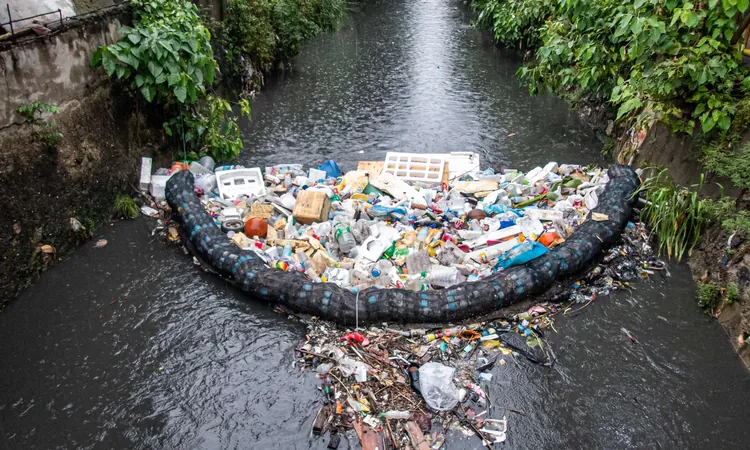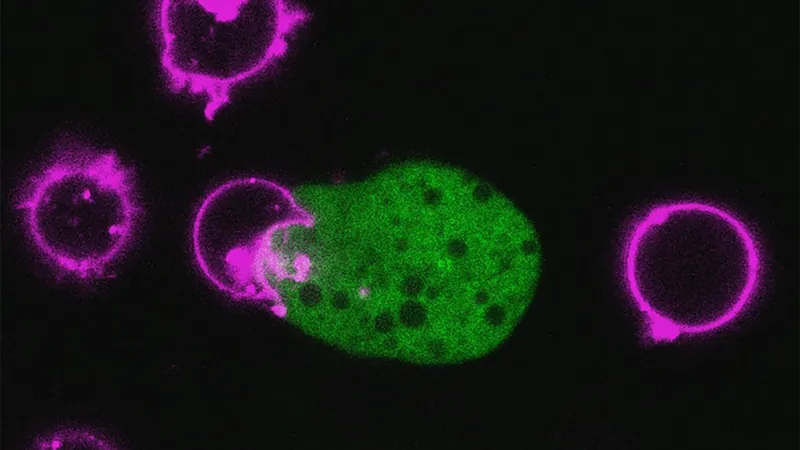
Revolutionizing Ocean Cleanup: AI Set to Boost Efficiency by 60%
2025-04-28
Author: Wei Ling
A Crisis Beneath the Waves
Plastic waste has infiltrated our oceans, posing a dire threat to marine life, disrupting ecosystems, and wreaking havoc on global economies. For years, tackling this issue has been complicated by the vastness of the oceans and ever-changing environmental conditions.
AI Emerges as a Game-Changer
Enter artificial intelligence (AI), a groundbreaking ally in the fight against ocean plastic pollution. Recent research highlights how AI algorithms can enhance plastic removal efficiency by a staggering 60%, bringing us closer to the elusive dream of plastic-free oceans.
Transforming Cleanup Operations
Traditionally, ocean cleanup efforts have relied on simple, manual routes, where ships would trawl across the water using predictable paths, often neglecting shifting plastic concentrations and weather patterns. But this new study, carried out from 2022 to 2024, has fundamentally redefined the approach. Researchers introduced a dynamic optimization model that can identify the most effective plastic collection routes in mere seconds, efficiently covering large ocean expanses.
"With AI-driven analytics, we can dramatically enhance our plastic removal efforts in the ocean," explains Dick den Hertog from the University of Amsterdam. "Real-time route optimization ensures every effort collects maximum debris, significantly boosting effectiveness."
Sleek Math Powers AI Efficiency
At the heart of this innovation is an advanced mathematical framework that conceptualizes routing as a complex graph, where locations are nodes and possible movements between them are edges. The challenge isn't merely navigation but maximizing plastic capture over time; every ship's movement directly impacts future plastic distributions, creating a sophisticated optimization puzzle.
To tackle this challenge, researchers developed a search-and-bound method powered by dynamic programming, achieving high-quality solutions that are remarkably close to theoretical ceilings.
Urgency of the Plastic Crisis
Plastic pollution has reached staggering proportions, with estimates suggesting over 170 trillion plastic particles currently drifting in our oceans. While climate change continues to dominate global discussions, ocean plastic pollution persists as a critical yet frequently overlooked emergency.
"This research illustrates that AI and operational strategies are not solely for tech and finance; they can effectively address pressing environmental issues," asserts Jean Pauphilet from London Business School.



 Brasil (PT)
Brasil (PT)
 Canada (EN)
Canada (EN)
 Chile (ES)
Chile (ES)
 Česko (CS)
Česko (CS)
 대한민국 (KO)
대한민국 (KO)
 España (ES)
España (ES)
 France (FR)
France (FR)
 Hong Kong (EN)
Hong Kong (EN)
 Italia (IT)
Italia (IT)
 日本 (JA)
日本 (JA)
 Magyarország (HU)
Magyarország (HU)
 Norge (NO)
Norge (NO)
 Polska (PL)
Polska (PL)
 Schweiz (DE)
Schweiz (DE)
 Singapore (EN)
Singapore (EN)
 Sverige (SV)
Sverige (SV)
 Suomi (FI)
Suomi (FI)
 Türkiye (TR)
Türkiye (TR)
 الإمارات العربية المتحدة (AR)
الإمارات العربية المتحدة (AR)